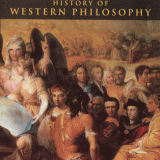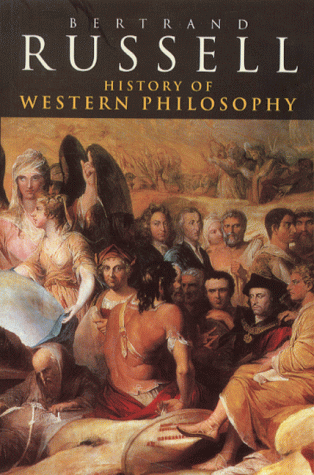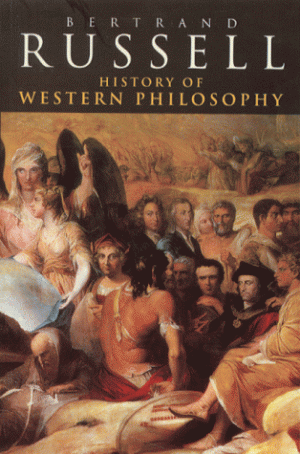A History of Western Philosophy – Bertrand Russell – 1945
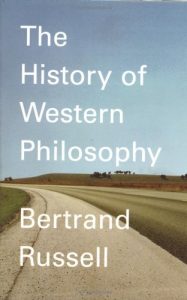
Reviewed by: Michael Sympson Date: 13 September 2001
There are many ways to understand the meaning of philosophy, but I believe Bertrand Russell himself had said it best:
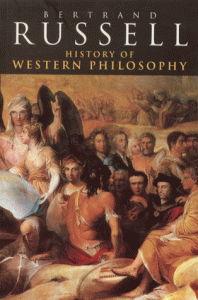
“Is there anything we can think of which, by the mere fact that we can think of it, is shown to exist outside of our thought? Every philosopher would LIKE to say yes, because a philosopher’s job is to find out things about the world by thinking rather than observing. If yes is the right answer, there is a bridge from pure thought to things, if not, not.”
Lord Russell obviously had an eye to spot the bogus and Hegelians and Phenomenologists detest him for that. The dislike is mutual, I for my part can also do perfectly well without Hegel, Heidegger and Derrida. I have a very wide reading in philosophy, but I stopped reading it after I had finished with Kripke in the mid eighties. Since then I lean back and enjoy the show without engaging myself in any debate. But that much is apparent: of all philosophers from the 2oth century, Russell is probably the most educational and had been read by more lay-people than any other philosopher. Was that a bad thing? I would say definitely not. His book is still a good travel guide, written by a vociferous and independent mind and in a style of such clarity, that it can’t help of sounding offensive, especially to acolytes of oracular nonsense.
Having said this, I too here and there would prod the old man for an injustice, say about Immanuel Kant or Schopenhauer. In Kant’s case however, I can appreciate that we look not only at a fundamental difference of opinion, but differences in competence. Bertrand Russell’s own monumental contributions to mathematics and symbolic logic, entitle him to be a bit snobbish. Kant’s philosophy still employs a logical tool that seemed to have had barely advanced from Aristotle. It is a point only few critics ever raise, but Kant wasn’t up to date even of the logical developments during his own era. So many points in his philosophy, which he assumes would pertain to cognitive functions, are actually not logical at all, but belong to the set of generic conventions that seem to underpin our linguistic faculties. It’s an honest disagreement, and the greater authority here is on Russell’s side. But he should have given more space to Charles Saunders Peirce, who, among many other things, picked up on Kant’s table of (basically Aristotelian) categories and put them into the context where they really belong. Russell’s scant treatment of Peirce, who with some justice had been called “the most original and the most versatile intellect that the Americas have so far produced,” is not so easy to understand.
As for Schopenhauer I must say Russell, or his source, is just ill informed. Schopenhauer made his own valuable contributions to epistemology which are of interest independently from Schopenhauer’s more idiosyncratic views expressesed in his later works. In fact by temperament he and Russell had much in common, Schopenhauer being Russel’s equally caustic and ebullient Teutonic counterpart, and, like Russell, a great stylist in his language. If you want a more limited but more in debt overview on the history of philosophy in general up to Schopenhauer’s time, then read Schopenhauer’s essays “On the Will in Nature” and his “Paerga and Paralipomena.” Schopenhauer liked to see himself as standing on the shoulders of an illustrious line of philosophers since antiquity – the last link that lays the final stone. “Every author creates his own pedigree,” says Borges, himself a great admirer of Schopenhauer, and Schopenhauer was very good at creating such pedigree for philosophical ideas and following their course through history.
But the most telling omission in Lord Russell’s book is that of his own protege: Ludwig Witgenstein. After a brief honeymoon the two headstrong philosophers went on a long journey of irreconcilable differences, and I can’t help siding with Russell on this. Witgenstein is gravely overrated these days, but apart from his unpleasant personality and the airs of a latter day saint he contributed to philosphy proper very little worth mentioning. Russell has the grace and malicious charm of Voltaire, and like him he was a great popularizer and educator. His “History of Western Philosophy” is worth every penny.


